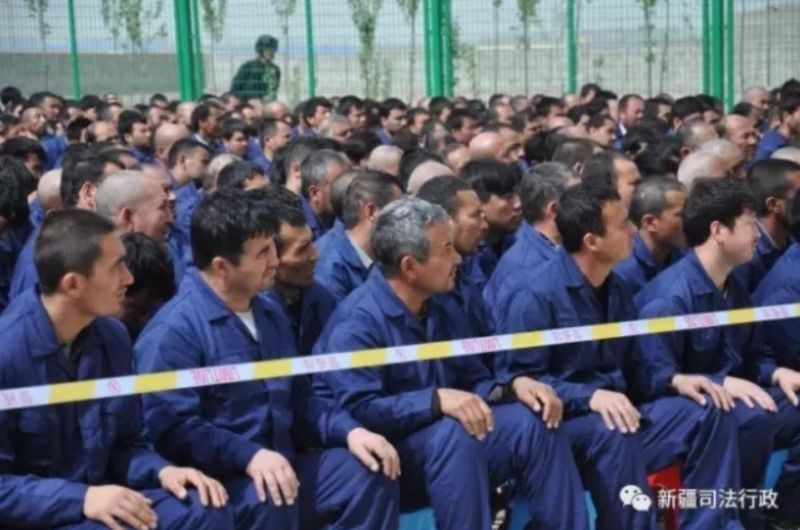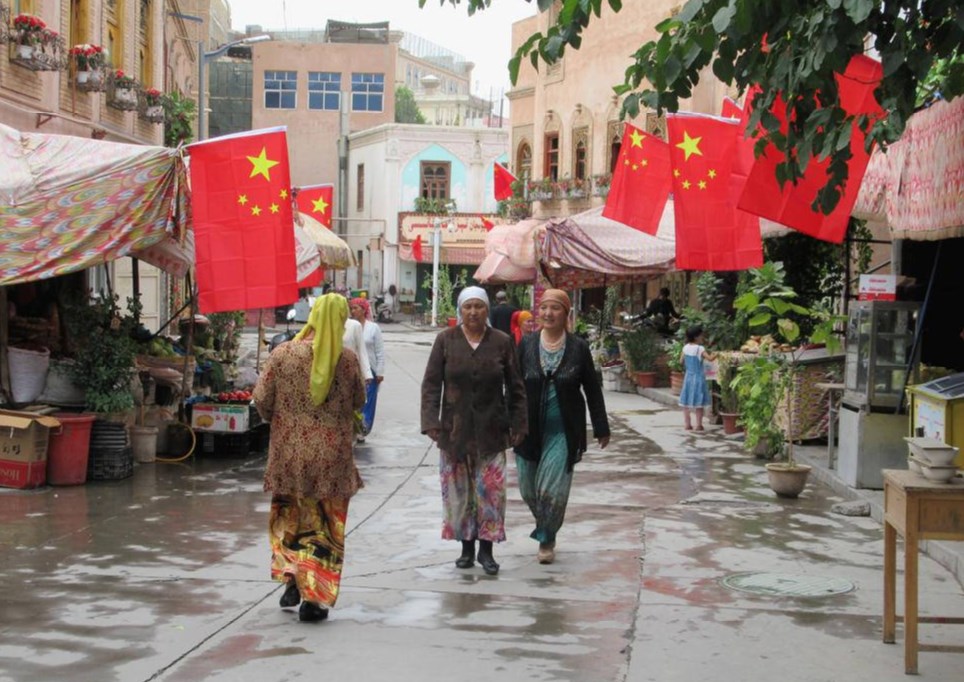China’s fractious far-west region of Xinjiang has changed its university entrance exam rules to give children from mixed families a leg-up on other students, in what experts say are the latest efforts to erase a mostly Muslim ethnic culture.
Following a flare-up in violence in 2014, Chinese authorities have rolled out draconian security measures across Xinjiang in recent years, from banning long beards and Islamic veils to placing an estimated one million mostly Muslim ethnic minorities in internment camps.

Chinese officials describe the facilities as voluntary “vocational education centres” where Turkic-speaking people are taught Mandarin and job skills in a bid to steer them away from religious extremism.
But rights groups and former inmates see the measures as part of a campaign to forcefully assimilate Uighurs and other minorities into the country’s majority ethnic Han society, diluting their unique cultures and religious beliefs.
Observers say the change in the university enrolment system is another step in that direction, particularly in a region where Uighurs made up almost half of the 23-million-strong population, according to 2015 statistics.
In an online notice posted last week, the Xinjiang government published new rules for giving bonus points to disadvantaged groups in the nationwide college entrance exams — a key deciding factor for attending university in China.
In a reversal of last year’s policy, the regional government doubled the number of bonus points allocated to inter-ethnic students — defined as those with one Han parent — to 20, while more than halving the amount for students whose parents are both ethnic minorities to 15.
The new exam policy is “part of this effort to sinocize any kind of non-Han forms of thoughts and behaviour”, said James Leibold, a professor at La Trobe University.

The government believes that “inter-ethnic marriage is a key vehicle for promoting national integration and assimilating the Uighurs and other ethnic minorities in the Chinese nation,” Leibold, who studies ethnic relations and policy in China, told AFP.
Timothy Grose, a China ethnic policy expert at the Rose-Hulman Institute of Technology, said the “new incentives for intermarriage expose the CCP’s (Chinese Communist Party) systematic approach to weakening Turkic-Muslim identities.”
“Perhaps officials are re-introducing the ‘carrot’ when in the past few years they have only been lashing the ‘stick’,” said Grose, whose research focuses on Uighurs.
The Xinjiang government did not immediately respond to an AFP request for comment.
‘Grandma Li’
The change in exam policy is not the first time Chinese authorities have offered incentives for inter-ethnic mixing.

In 2014, the Qiemo county government in Xinjiang reportedly announced it would gift mixed couples — one Han, one ethnic minority — annual cash payments of 10,000 yuan (US$1,450) for the first five years of their marriage.
“Chinese policymakers and sociologists have long viewed high rates or high instances of inter-ethnic marriage as a kind of proxy symbol for social cohesion and national integration,” explained Leibold.
On top of initiatives spearheaded by the government, videos promoting Uighur-Han marriages have also emerged on social media over the past year, though it is unclear whether they are directly linked to official policies.
In October, a video published by “Grandma Li”, a culture and lifestyle social media account run by a Xinjiang-based woman, encouraged more people to move to the region to “look for love”.
“Even though their ethnicity is different and their beliefs are different, it seems like it (inter-ethnic marriage) is happening more and more now,” said Li.
The Sinophone internet is awash with short videos promoting Han-Uyghur inter-marriage. This one asserts that Xinjiang has long been a mixed race region and is now safe and home to many beautiful and eligible Uyghur women who will appreciate a doting Han husband pic.twitter.com/yuHnidD0L7
— James Leibold (@jleibold) April 23, 2019
“Besides, the government is very much encouraging it — there are even rewards,” she added.
‘Mutual suspicion’
But it is unlikely that the latest government-backed incentive will change perceptions of Uighurs and Han across ethnic lines, experts say.
Though statistics on inter-ethnic marriage in China are scarce, national census data from 2010 shows that both Han and Uighur populations tend to marry within their ethnic group, with only 0.2 percent of Uighurs married to Han people.

“Officials have encouraged inter-ethnic marriage for decades, but with little success,” said Grose. “I don’t see how this change to test scores will persuade minorities in droves to seek out Han partners.”
Online, Chinese social media users have voiced scepticism towards top-down policies rewarding inter-ethnic marriages, with some complaining that they are unfair to Han people.
“There’s a great deal of mutual suspicion and distrust between the two groups but that doesn’t stop the party-state from trying to push the agenda,” said Leibold.
The Hong Kong Free Press #PressForFreedom 2019 Funding Drive seeks to raise HK$1.2m to support our non-profit newsroom and dedicated team of multi-media, multi-lingual reporters. HKFP is backed by readers, run by journalists and is immune to political and commercial pressure. This year’s critical fundraiser will provide us with the essential funds to continue our work into next year.

